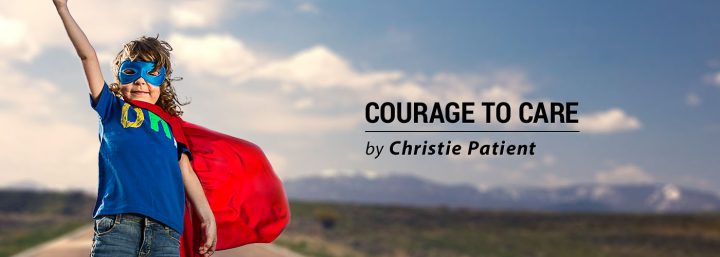Pandemic Protocols Show World How Post-transplant Paranoia Feels

Rare disease patients and caregivers have a lot to teach the world right now. No matter your role in the rare disease community, I would be willing to bet this is not the first time you’ve sheltered at home to avoid infection.
While we may be used to taking precautions like social distancing and isolation at home, much of the world is having to do this for the first time. Public health workers worldwide agree that sheltering at home, and keeping our distance from others if we must go out, is the best way to fight the coronavirus pandemic. While I hope that people emerge from this pandemic with a huge capacity for empathy and better handwashing habits, I know many people struggle to cope with such a sudden and radical change to daily life.
I’ve been checking in with my transplanted friends and colleagues over the past few weeks, and have heard the same thing time and again: “This feels just like right after my transplant!” It’s true! We follow similar protocols in bringing someone home with no virtually immune system.
My mom endured so much pain and suffering in the ICU. In the beginning, every day was a battle against rapidly declining health. A million things could have gone wrong. I felt a very primal kind of fear during that time — survival mode. The incredible healthcare workers at the University of California, San Francisco Medical Center kept her alive through the scariest moments. During those months, that hospital became the safest place on earth in my mind. It is full of people with unparalleled skills for saving lives.
My mom’s discharge was a joyous occasion, but taking her out of that safe place prompted a new kind of fear, more akin to paranoia. It’s this kind of fear that people around the world are learning to cope with now.
After lung transplantation, the patient leaves the operating room with virtually no immune system. Both patients and caregivers have to sit through many lectures before discharge. Everyone from a pharmacist, nutritionist, respiratory therapist, and social worker to numerous MDs teach you how to keep your newly reborn, immunosuppressed person healthy. The goal is to prepare you to be safe at home, and eventually, out in the world.
But how are you supposed to feel safe in a rented flat you haven’t personally disinfected from top to bottom? Or in a city full of people moving about and bumping into each other? How are you supposed to be certain that the food you’re preparing for your mother hasn’t been sneezed on by a careless shopper, or touched by children on their way home from school?
All the what-ifs and invisible threats were headline news in my brain for months. I knew every kind of infection that she could get, and started seeing the world as a vector map. Fungal hotspots in the neighbors’ rose garden. Viral hotspots in each hacking cough on public transportation. Bacterial hotspots on doorknobs, bus stops, crosswalk buttons, and infinite other places. Food poisoning was as close as one accidental use of a dirty knife on an apple.
All we could do to keep my mom safe was follow guidelines and try our best. We disinfected all the kitchen surfaces, doorknobs, and faucet handles every day. We washed our hands until the skin cracked. We wore gloves and masks to sort pills and check vitals. We washed foods better, cooked them longer, and ate things before mold even had the chance to consider growing.
Despite all our efforts, my mom’s new lungs came with a nasty hitchhiker that landed her back in the hospital for a month. But guess what? She survived that, too. And her health has been pretty much perfect since then.
So, I guess what I am trying to say is that all we can do right now is try our best. Follow the guidelines. Try not to get overwhelmed with all of the uncertainties, and do whatever we can to stay healthy and protect others. It may not always work— sometimes we get unlucky — but most of the time, we come through all right.
Those of us who live with increased risk to our health, or who have cared for someone with a chronic illness or suppressed immune system know the ropes. We are prepared to hunker down and shelter through coronavirus because we have done this kind of thing before, and we know that it works.
Perhaps we can share our strength and knowledge to help others find peace in the pandemic.
***
Note: Pulmonary Fibrosis News is strictly a news and information website about the disease. It does not provide medical advice, diagnosis, or treatment. This content is not intended to be a substitute for professional medical advice, diagnosis, or treatment. Always seek the advice of your physician or other qualified health provider with any questions you may have regarding a medical condition. Never disregard professional medical advice or delay in seeking it because of something you have read on this website. The opinions expressed in this column are not those of Pulmonary Fibrosis News or its parent company, Bionews Services, and are intended to spark discussion about issues pertaining to pulmonary fibrosis.








Leave a comment
Fill in the required fields to post. Your email address will not be published.